Genre? Novel. Style? Northern Gothic, certainly. Magic Realism, maybe. Rating? * * * *
What happens in it? It is a circus of characters and incident. Part satire and part hyperrealism.
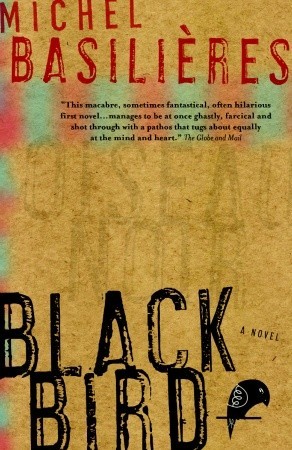
In her one-woman struggle to free Québec from the evil Anglos young Marie inadvertently blows up her maternal grandfather who becomes a spectral observer thereafter.
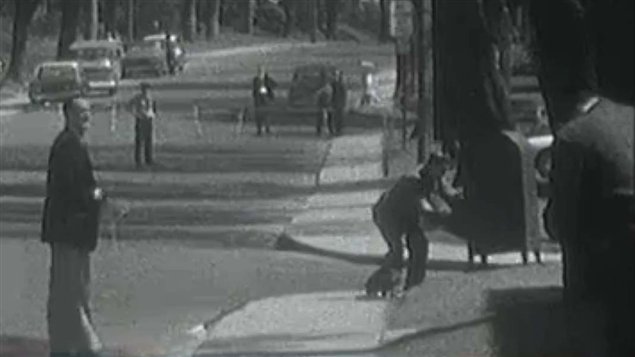 The Francophone police officer shown is trying to defuse an FLQ bomb. It blew up and left him maimed and crippled.
The Francophone police officer shown is trying to defuse an FLQ bomb. It blew up and left him maimed and crippled.
Her feckless twin brother Jean-Baptiste is irritated that with his own name in Montréal he cannot read French. The crow that Aline keeps in the kitchen attacks Grandfather. Tabernac! The FLQ consists mostly of spies in the pay of the Gendarmarie Royal.
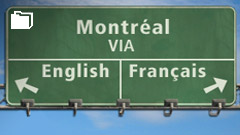
Grandfather before and after losing the eye pursues his profession with father. They are grave robbers and Mont Royal is their hunting, well, digging, ground. They are accustomed to finding others, living there and work around them. But once the ground freezes in November, they have to wait…or do they?
In a ramshackle, decaying house three or is it four generations of Desouches live. Grandfather, father, and uncle, as our narrator terms them, shun the company of neighbours. This is another uncle apart from the one who was passing the letter box when Marie’s bomb went off, heralding a new era of freedom for Québecois. Then there is mother and Aline. I found it hard to keep the family straight. I started to make a score card, but that slowed down the reading, so I stopped. Pace is everything in these pages.
Father does not join the grave robbers, preferring instead to do nothing at all. He is surprisingly energetic in this pursuit.
Basilières includes the FLQ Crisis and the War Measures Act with René Lévesque’s manslaughter, the murder of Pierre La Porte with his own crucifix. Salutary reminders for those who find Canadian politics boring that boring is good compared to the alternative. The Montréal Basilières’s conjures from his keyboard lacks only voodoo and Spanish moss to be a cold version of mysterious and eerie New Orleans found so often in the popular culture in Southern gothic novels.
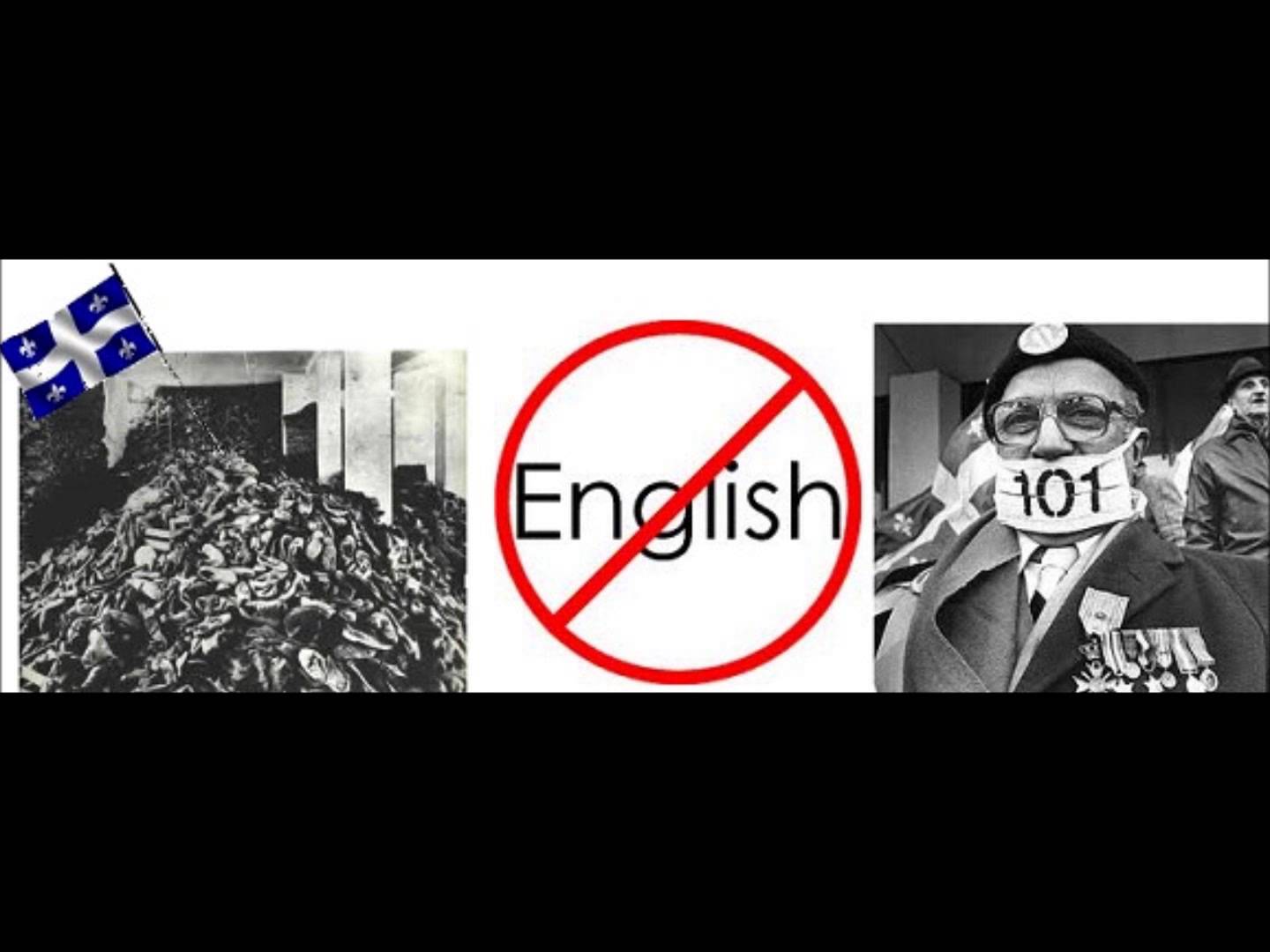
The Christmas gifts Jean Bapiste and Marie exchange in their mutual incomprehension are treasures. He only knows and relates to books but he is dimly aware of Marie’s activities. Ergo he gives her a copy of Carlos Marighella’s 1969 ‘Minimanual of the Urban Guerrilla.’ She supposes he means it as a condemnation of her feeble efforts, and flies into a rage. But not before she gives him a blank book to show her contempt for his reading and writing, and he takes it to mean she wants him to write in the book and he immediately sets to to work to do it and indeed does. (It is a blank note book bound to look like a book. Their misunderstanding is complete and to the core.)
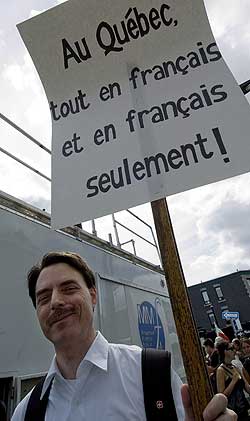
The subsequent account of the performance of the play that emerges from the blank book is a wonderful satire on everything it touches from the producer-director to the audiences. Nothing is sacred. Calice!
Fact is one thing and fiction is another and this is fiction: This is a Montréal populated by grave robbers who siphon off the neighbour’s natural gas to heat their ark but cannot control it so that house is an oven during the coldest winter, a Montréal where Felquiste and Pequiste hate each other and no one but them cares one whit and that drives each of them to new heights of frustration, a Montréal where a glass eye offers better sight that the real thing, a Montréal where the timeline of history bends….
It is no accident that the family physician is named Dr. Hyde who is a famous surgeon and yet is ready and willing to make house-calls to the Desouches (because they supply what he demands – see above). The good doctor does his most important work alone at night, and has some unexpected success.
 Michel Basilieres
Michel Basilieres
Marie becomes an avenging angel and single-handedly kidnaps the British Trade Commissioner and later she strangles him to death with his own rosary chain. It is Rated-R and rather gruesome, and she, of course, finds it difficult to do and to live with, but…. Then there is that lousy gas connections, and boom, many problems are obliterated. Marie, in another time and place, would have been a postulant in a convent such as imagined in Ron Hansen’s fine novel ‘Mariette in Ecstasy’ (1991), reviewed elsewhere on this blog.
One of the most exhilarating novels I have read. I came across it in a Montréal bookstore while walking some of the streets described in it and that added a frisson the first time I read it in in 2009. It came to mind recently as I read a few things about Canada and Québec so I sat down with it again. Great fun. Gabrielle Roy chronicled Montréal life in a series of wonderful novels in the 1940s and 1950s. Wry, gentle, bemused and serious, they are. In this book, by contrast, nothing is serious nor sacred. Though it is deeply ‘de vieille souche’ as they used to say on that island in the fleuve St Laurent, it was written in English. Those among the Québeceratti who take themselves ever so seriously avoided any mention of the book. The contemporary reviews I found were all in English in English-language publications. One of which chides the author for mashing together the FLQ crisis and the PQ government and confusing Pierre LaPorte with James Cross. Not everyone gets the point, it seems.
Skip to content
